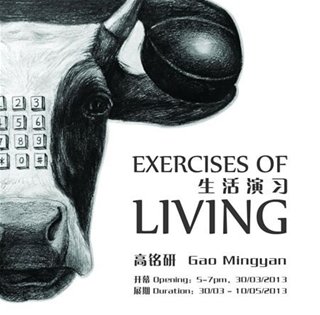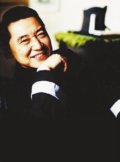韦伯(Carl Maria Von Weber)德国作曲家(1786—1826),诞生在奥汀堡一个旅行剧团领班人的家庭。
他的父亲是业余小提琴家,母亲是歌唱家。成柏自幼学习音乐。十二岁时,他已有六首小赋格曲出版。十四岁,他创作的歌剧《森林女郎》上演。1804年,韦伯在布累斯劳市任指挥。1806年至1810年,又在卡尔斯鲁尔和斯图加特宫廷任职。从1813年起,韦伯在布拉格歌剧院任指挥。1817年,他来到德累斯顿,在德意志歌剧院担任常任指挥。1826年,韦伯应伦敦柯文特花园剧院创作歌剧《奥布朗》,并带病赴英都筹备歌剧上演,同年6月5日病逝于伦敦。 
韦伯是德国浪漫派音乐的先行者。在他仅仅四十年的生涯中,创作了歌剧、合唱、歌曲、交响音乐、室内乐、钢琴曲等许多作品。他的单簧管协奏曲、钢琴曲《邀舞》,以及他根据德国诗人柯尔奈的诗集写作的爱国歌曲集《诗琴与宝剑》,都韦伯作品中深受欢迎、流传甚广的有名作品。在韦伯的歌剧作品中,《自由射手》、《奥布朗》和《优兰蒂》最为著名。《自由射手》以民同神话传说为题材,是韦伯歌剧中的代表作,曾被赞誉为德国的第一部民族歌剧。韦伯多才多艺。他不但作曲,而且创作小说。他的音乐评论,为德国民族歌剧和浪漫派音乐的兴起,宣传了进步的美学观点。
《自由射手》(又译“魔弹射手”)是浪漫派歌剧的典范,韦伯花费了三年的时间来完成这部综合性质的歌剧,他对当时通常的管弦乐配置作了部分动来配合歌剧的需要,在文字与舞台造型方面也精心打磨。韦伯在这部歌剧中运用的音乐独具特色,用圆号代表猎人,单簧管则代表黑猎人,而给予森林、狼谷的音乐充分体现了民族色彩。歌剧取材于德国文学家约翰·奥古斯特·阿贝尔编著的《德国鬼故事集》,脚本作者是约翰·菲德利希·金德,剧中黑猎人卡斯帕这一角色,是浪漫主义时期所推崇的黑色英雄的典型。
b. 22 March 1948, London, England. The “Sir Arthur Sullivan” of the rock age was born the son of a Royal College of Music professor and a piano teacher. His inbred musical strength manifested itself in a command of piano, violin and French horn by the time he had spent a year at Magdalen College, Oxford, where he penned The Likes Of Us with lyricist (and law student) Tim Rice. As well as his liking for such modern composers as Hindemith, Ligeti and Penderecki, this first musical also revealed a captivation with pop music that surfaced even more when he and Rice collaborated in 1967 on Joseph And The Amazing Technicolor Dreamcoat, a liberal adaptation of the scriptures. Mixing elements of psychedelia, country and French chanson, it was first performed at a London school in 1968 before reaching a more adult audience, via fringe events, the West End theatre (starring Paul Jones, Jess Conrad and Maynard Williams), an album, and, in 1972, national television.
In the early 70s, Lloyd Webber strayed from the stage, writing the music scores for two British films, Gumshoe and The Odessa File. His next major project with Rice was the audacious Jesus Christ Superstar which provoked much protest from religious groups. Among the studio cast were guest vocalists Michael D’Abo, Yvonne Elliman, Ian Gillan and Paul Raven (later Gary Glitter ), accompanied by a symphony orchestra under the baton of André Previn - as well as members of Quatermass and the Grease Band. Issued well before its New York opening in 1971, the tunes were already familiar to an audience that took to their seats night after night as the show ran for 711 performances. A less than successful film version was released in 1973. After the failure of Jeeves in 1975 (with Alan Ayckbourn replacing Rice) Lloyd Webber returned to form with Evita, an approximate musical biography of Eva Peron, self-styled ‘political leader’ of Argentina. It was preceded by high chart placings for its album's much-covered singles, most notably Julie Covington ’s ‘Don’t Cry For Me Argentina’ and ‘Oh! What A Circus’from David Essex. Evita was still on Broadway in 1981 when Cats, based on T.S. Eliot's Old Possum’s Book Of Practical Cats, emerged as Lloyd Webber’s most commercially satisfying work so far. It was also the composer’s second musical without Rice, and included what is arguably his best-known song, ‘Memory’, with words by Eliot and the show's director, Trevor Nunn. Elaine Paige, previously the star of Evita, and substituting for the injured Judi Dench in the feline role of Grizabella, took the song into the UK Top 10. Subsequently, it became popular for Barbra Streisand, amongst others. With Song And Dance (1982), which consisted of an earlier piece, Tell Me On Sunday (lyrics by Don Black ), and Variations composed on a theme by Paganini for his cellist brother, Julian, Lloyd Webber became the only theatrical composer to have three works performed simultaneously in both the West End and Broadway. Two items from Song And Dance, ‘Take That Look Off Your Face’ and ‘Tell Me On Sunday’ became hit singles for one of its stars, Marti Webb. Produced by Cameron Mackintosh and Lloyd Webber’s Really Useful Company, it was joined two years later by Starlight Express (lyrics by Richard Stilgoe ), a train epic with music which was nicknamed ‘Squeals On Wheels’ because the cast dashed around on roller skates pretending to be locomotives. Diversifying further into production, Lloyd Webber presented the 1983 comedy Daisy Pulls It Off, followed by The Hired Man, Lend Me A Tenor and Richard Rodgers and Lorenz Hart’s On Your Toes at London’s Palace Theatre - of which he had become the new owner.
Like Sullivan before him, Lloyd Webber indulged more personal if lucrative artistic whims in such as Requiem, written for his father, which, along with Variations, became a best-selling album. A later set, Premiere Collection, went triple platinum. A spin-off from Requiem, ‘Pie Jesu’ (1985), was a hit single for Paul Miles-Kington and Sarah Brightman, the composer’s second wife. She made the UK Top 10 again in the following year, with two numbers from Lloyd Webber’s The Phantom Of The Opera (adapted from the Gaston Leroux novel), duetting with Steve Harley on the title theme, and later with Cliff Richard on ‘All I Ask Of You’. The original ‘Phantom’, Michael Crawford, had great success with his recording of another song hit from the show, ‘The Music Of The Night’. Controversy followed, with Lloyd Webber’s battle to ensure that Brightman re-created her role of Christine in the Broadway production in 1988. His US investors capitulated, reasoning that future Lloyd Webber creations were guaranteed box office smashes before their very conception. Ironically, Aspects Of Love (lyrics by Charles Hart and Don Black), which also starred Brightman (by now Lloyd Webber’s ex-wife), was rated as one of the failures (it did not recoup its investment) of the 1990/1 Broadway season, although it eventually ran for over 300 performances. In London, the show, which closed in 1992 after a three year run, launched the career of Michael Ball, who had a UK number 2 with its big number, ‘Love Changes Everything’. In April 1992, he intervened in the Tate Gallery’s attempt to purchase a Canaletto. Anxious, that it should remain in Britain, he bought the picture for ? million. He was reported as commenting ‘I’ll have to write another musical before I do this again’. That turned out to be Sunset Boulevard, a stage adaptation of Billy Wilder’s 1950 Hollywood classic, with Lloyd Webber’s music, and book and lyrics by Don Black and Christopher Hampton. It opened in London on 12 July 1993 with Patti LuPone in the leading role of Norma Desmond, and had its American premiere in Los Angeles five months later, where Desmond was played by Glenn Close. Legal wrangles ensued when Lloyd Webber chose Close to star in the 1994 Broadway production instead of LuPone (the latter is said to have received ‘somewhere in the region of $1 million compensation’), and there was further controversy when he closed down the Los Angeles production after having reservations about the vocal talents of its prospective new star, Faye Dunaway. She too, is said to have received a ‘substantial settlement’. Meanwhile, Sunset Boulevard opened at the Minskoff Theatre in New York on November 17 with a record box office advance of $37.5 million. Like Cats and The Phantom Of The Opera before it, the show won several Tony Awards, including best musical, score and book. Lloyd Webber was living up to his rating as the most powerful person in the American theatre in a list compiled by TheaterWeek magazine. His knighthood in 1992 was awarded for services to the theatre, not only in the US and UK, but throughout the world - at any one time there are dozens of his productions touring, and resident in main cities. Among his other show/song honours have been Drama Desk, Grammy , Laurence Olivier, and Ivor Novello Awards. Cats, together with Starlight Express and Jesus Christ Superstar, gave Lloyd Webber the three longest-running musicals in British theatre history for a time, before the latter show was overtaken by Les Misérables.. He is also the first person to have a trio of musicals running in London and New York. Jesus Christ Superstar celebrated its 20th anniversary in 1992 with a UK concert tour, and other Lloyd Webber highlights of that year included a series of concerts entitled The Music Of Andrew Lloyd Webber (special guest star Michael Crawford), a smash hit revival of Joseph And The Amazing Technicolor Dreamcoat at the London Palladium, and the recording, by Sarah Brightman and José Carreras, of Lloyd Webber and Don Black’s Barcelona Olympic Games anthem ‘Friends For Life’ (‘Amigos Para Siempre’).
Since those heady days, Lloyd Webber admirers have waited in vain for another successful theatrical project, although there has been no shortage of personal kudos. He was inducted into the Songwriters Hall of Fame, presented with the Praemium Imperiale Award for Music, became the first recipient of the ASCAP Triple Play Award, and in 1996 received the Richard Rodgers Award for Excellence in the Musical Theatre. In the same year a revised version of his 1975 flop, Jeeves, entitled By Jeeves, was well received during its extended West End season, but a new work, Whistle Down The Wind (lyrics: Jim Steinman, book: Patricia Knop), failed to transfer to Broadway following its Washington premiere. After being extensively re-worked, it arrived in the West End in 1998. A revival of Jesus Christ Superstar re-opened the old Lyceum, just off the Strand, and a film version of Evita, starring Madonna, was released, containing a new Lloyd Webber-Rice song, ‘You Must Love Me’, for which they won Academy Awards. Elevated to the peerage in 1997, Baron Lloyd-Webber of Sydmonton disclosed that the New York and London productions of Sunset Boulevard, which both closed early in that year, ‘lost money massively overall’, and that his Really Useful Group had reduced its staff and suffered substantial financial setbacks. On the brighter side, in January 1996 the West End production of his most enduring show, Cats, took over from A Chorus Line as the longest-running musical of all time, and in June 1997, the show’s New York production replaced A Chorus Line as the longest-running show (musical or play) in Broadway history. Early in 1998, Lloyd Webber was honoured with Variety ’s first British Entertainment Personality Of The Year Award.
 范海龙新作展
范海龙新作展 崔明涛
崔明涛 “画水者”李
“画水者”李 “EXIN亚洲实
“EXIN亚洲实 “迷Mythos”
“迷Mythos” “生活演习”
“生活演习” “中国娇子”
“中国娇子” 傅聪
傅聪 郎朗
郎朗 李云迪
李云迪 宋思衡
宋思衡 孔祥东
孔祥东 托特里耶
托特里耶 戴维.包佩
戴维.包佩 杜波尔兄
杜波尔兄 莫札特
莫札特